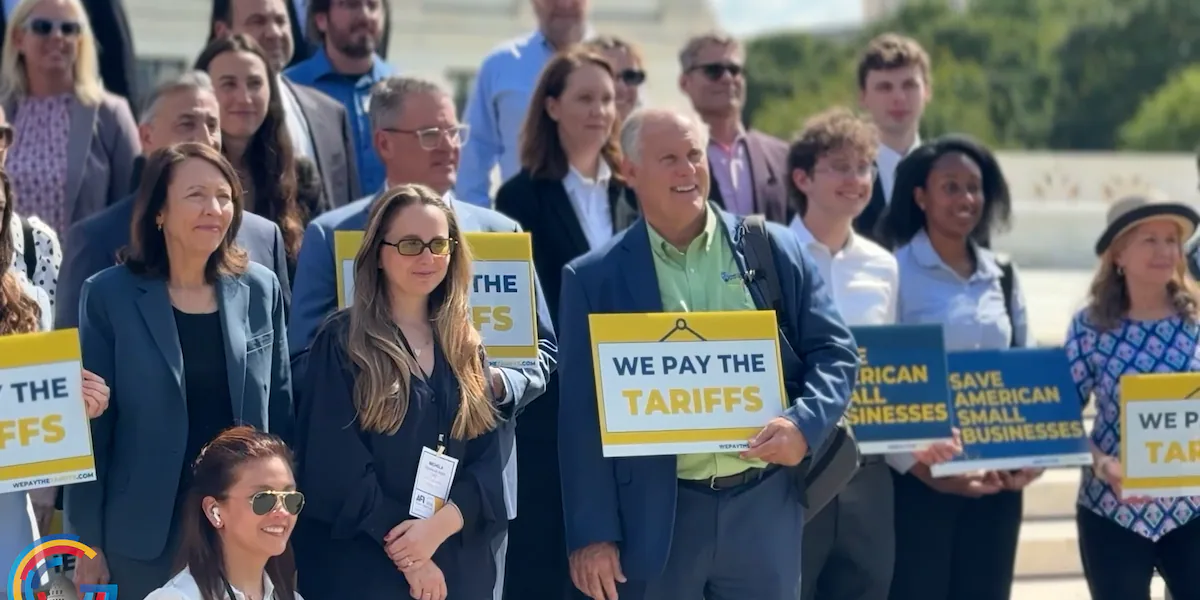
Louisiana planning authorities have voted to rush through approval for three natural gas turbines to power Meta’s massive new data center in Richland Parish. When it’s done, the 4-million-square-foot facility will require more than 2 gigawatts of energy to run.
On August 20, Louisiana’s Public Service Commission voted four to one to approve the construction of the plants, which will be run by the utility company Entergy Louisiana. The decision was met with criticism from members of the public who testified against Entergy and Meta’s plan, claiming that the process was rushed. They voiced concerns about rising energy bills and water shortages.
Documents viewed by WIRED show that state authorities agreed to grant Meta tax breaks and incentives without the company explicitly guaranteeing any full-time jobs for local workers.
Opponents of the plan were angry about the sped-up approval timeline: Entergy submitted its application in 2024, and the vote originally could have taken place this October, to give the commission’s administrative law judge the chance to issue further recommendations. But Entergy filed a motion to move the vote to August, claiming that some of the parties that had previously opposed the project were now in agreement. The rescheduled vote left no time for changes.
Critics also claim the deal doesn’t include stipulations like a cap on how much Entergy could charge utility customers for the construction of the gas plants and transmission lines in Meta’s data center build-out—a concern as massive AI data centers can cause utility bills to spike. While Meta agreed to finance the first 15 years of a 30-year loan to construct the gas plants, the construction of the transmission line will be paid for by utility customers.
“We wanted the commissioners to attach conditions and reasonable safeguards, such as a cost cap, but they instead came to this extremely disappointing and baffling decision,” says Paul Arbaje, an energy analyst with the Union of Concerned Scientists, which opposed the Entergy application.
During the approval vote, Entergy and Louisiana’s economic development officials repeatedly pointed to the projections shared by Meta, which suggest that the project would bring a $10 billion investment and upwards of 300 to 500 well-paying jobs. In its original 2024 application for the plants, Entergy referenced Richland Parish’s low income levels—one in four residents lives below the poverty line—as a reason to authorize the plan.
“There has never been a better time to lift our residents out of poverty. There has never been a better time to give people in our region better jobs,” said Rob Cleveland, the CEO of Grow NELA, an economic development firm representing northwest Louisiana who testified in support of Entergy’s gas plants, at the hearing.
Meta’s Jobs Pledge
Louisiana politicians sought to rewrite zoning laws and shifted a tax rebate for broadband into a tax exemption for data centers, all to win Meta’s support in late 2024, according to January reporting from Nola.com. But the public had little time to scrutinize Louisiana’s economic development promises. They also heard little from Meta, which was not legally required to take part in the hearings on Entergy’s new gas plants, despite the fact that the gas plants and a new $550 million transmission line connecting energy to the data center and upgrades to a local substation (also approved on August 20) are being built entirely for the company—the latter entirely paid for by Louisiana taxpayers. Repeated attempts to force Meta to produce documents that critics claim they have not received were unsuccessful, including a July subpoena attempt.
One of Meta’s tax incentive agreements with the state, which was signed last fall and viewed by WIRED, does not stipulate that Meta subsidiary Laidley, which is running the data center project, will focus on local hiring, although it does require that all jobs be fulfilled on site. (Separately, Entergy said Meta submitted a letter to the Louisiana Public Service Commission in April saying that it will make “a concerted effort” to hire locally, but this assurance is not binding.)
And the tax incentive agreement does not actually require any of the jobs to be full-time to receive state incentives. Instead it defines “full-time job” to mean any 40-hour workweek fulfilled through any number of part-time jobs. Meta would need to hire these 500 “full-time” jobs by 2035 if it wants to receive the highest level of tax breaks, an 80 percent reduction on the full amount. It does require the jobs to provide health insurance and says the pay for all jobs should average out at $82,000 a year. The contract also charges Meta an “administrative fee” of $10,000 for every $1 billion it spends in the state.
When reached for comment, Kevin Litten, a spokesperson for the state’s economic development authority, said that the agency still expects Meta to create 500 full-time, permanent jobs, per previous announcements. “Meta is expected to create 500 direct new jobs at the facility, which in economic development terms means permanent, full-time jobs,” Litten says.
Entergy’s critics claimed the utility was reluctant to provide specifics on Meta’s job numbers in the lead-up to the August vote, refusing to explain what types of jobs will be created or how Meta estimated 300 to 500 new hires. In an email to WIRED, Entergy only referred to an impact report from Grow NELA but answered no other direct questions.
“We continually asked for analysis with how they came up with this number of jobs, and Entergy has no idea about how many people will be hired,” says Susan Stevens Miller, an attorney representing the Union of Concerned Scientists and Alliance for Affordable Energy, which opposed the application.
In an August 7 filing, Entergy urged the rushed vote on its final agreement with several parties, saying Meta’s subsidiary and the tech industry “prize speed to the market as vital to its competitiveness” and that “the Commission has the flexibility and agility to act at the new speed of business, while reasonably balancing the interests of other Louisiana customers.” Entergy said in a filing it had submitted ample public testimony and the public had a chance to ask questions and that moving quickly was, “the difference between securing the Project for Louisiana or missing out on this massive economic development opportunity, likely to another state willing to move at the speed of business.”
But when several members of the public asked questions during the August 20 hearing about the project, particularly around Meta’s assurances of jobs, they received few details. None of the agreements between Meta and the state of Louisiana that were viewed by WIRED are available in the commission’s public dockets. An earlier, six-page term sheet laying out hiring incentives was published by Power magazine in November, but it did not include further details about whether jobs could be part-time or any other details in the 93-page agreement viewed by WIRED. Advocates with the Alliance for Affordable Energy and Union of Concerned Scientists contacted by WIRED said they had never seen the full agreement until it was sent to them by WIRED.
Louisiana resident Angelle Bradford Rosenberg spoke at the August 20 approval meeting, expressing concern about the impact of the data center’s water usage and its impact on local farmers. She also questioned the impact of jobs on the local economy.
“I want local businesses to be thriving,” she said during the meeting, “but if the average data center permanent jobs are 12 to 15, and y’all saying it’s going to be 500, do y’all have a promise that they’re going to be local jobs? … Do we actually know that they’re hiring people from Monroe, Rayville, Delhi, Holly Ridge, or are they just saying 500 jobs and they’re bringing in these folks from other places?”
But the tax exemption agreement secured between Meta and Louisiana officials did not secure any guarantee of local hiring. Litten, with Louisiana Economic Development, told WIRED that separate state tax breaks that all companies in the state are eligible for do require local hiring. They include the Quality Jobs Rebate, which provides a 6 percent rebate on payroll expenses, a program set to replace it called High Impact Jobs program.
Most data centers hire specialists from out of state for the technical jobs, according to Kasia Tarczynska, a research analyst who studies data center tax breaks at the nonprofit Good Jobs First. She says data centers employ a mix of low-skill and high-skill technical workers to manage servers in addition to security guards and maintenance roles. She says that while construction is happening, data centers often hire specialist electricians who travel from state to state to set up servers.
For this reason, she says, Meta is not the only tech company hesitant to guarantee local hiring when negotiating data center contracts. “They know that some of these jobs require skills that people in the local community just don’t have.”
In response to questions from WIRED, Meta spokesperson Tracy Clayton said, “We make a concerted effort to source labor locally and provide substantial contributions directly to the community.” Clayton said that for part-time construction roles, its contractors were “working on hiring local talent” and that they would host information fairs early next year. For permanent data center jobs, Clayton said Meta would be hiring “technical operators, electricians, air-conditioning and heating specialists, logistics staff, security, and more.”
Meta’s Louisiana Tax Breaks
The state’s agreement with Meta makes clear that as public land, the property Meta is leasing is exempt from traditional taxes. It creates a menu of options for what the company would potentially owe in “payment in lieu of taxes” (PILOT), a common agreement that lets local governments offer tax breaks with provisions attached. The agreement offers Meta qualified exemptions from both sales tax and property tax.
To get the lowest level of property tax exemptions, Meta would need to invest $5 billion into the state and hire the equivalent of 300 full-time employees. At this level, Meta would have to pay 40 percent of the assessed property tax. If the company invests at least $10 billion by December 2032, it would get the highest exemption, paying 20 percent of the assessed property tax.
The agreement sets out hiring timelines that the company must also hit to receive these tax incentives: Meta can receive the highest property tax exemption as long as it hires the equivalent of 300 “full-time” jobs by 2030, 450 by 2032, 475 by 2033 and 500 by December 31, 2034.
Louisiana’s agreements ask for more than some other states’ tax subsidies. According to Good Jobs First, nearly half of state tax subsidies for data centers don’t require any new jobs to be created. But Miller has concerns that the tax breaks were not necessary at all to entice a company as large as Meta. “While everyone likes to avoid taxes, they’re not going to hire people in Richland [Parish] just because they’re going to get a tax break,” Miller says.
Louisiana had already amended a tax rebate to create an exemption for data centers in 2024 to entice Meta; in its latest iteration, it says data centers can receive a full sales tax exemption for equipment purchases in the state as long as they hire 50 full-time jobs and invest at least $200 million by July 1, 2029. A separate contract viewed by WIRED affirms that this applies to the Richland Parish data center, in addition to the PILOT agreement.
Good Jobs First says that at least 10 states have subsidies for data centers that are worth more than $100 million each, and “have suffered estimated losses of $100 million each in tax revenue for data centers,” according to its data. In total, these states forgo more than $3 billion in taxes annually for data centers. Texas revised the cost of its data center subsidy in 2025 from $130 million to $1 billion. In 2024, a pause on data center subsidies was passed in Georgia but vetoed by governor Brian Kemp.
The Franklin Farms site in Holly Ridge, the area of Richland Parish where Meta’s data center is being built, was purchased by Louisiana specifically for economic development projects. In its ground lease with Meta, Louisiana offered the 1,400-acre plot to the company for $12 million, which the lease says was the cost to the state of acquiring and maintaining the land. The lease also says Meta’s $732,000 a year “rent” is “credit toward the Base Purchase Price,” meaning the company will have paid for the property by a little over 16 years into its 30-year lease.
The price for the potential sale would be slightly higher if Meta does not reach minimum hiring and investment thresholds: As an example, the lease says if Meta only spends $4 billion in the state instead of $5 billion, the property would end up costing it $19 million. Louisiana Economic Development reserves the right to reclaim the property if Meta doesn’t invest at least $3.75 billion and hire the equivalent of 225 “full-time” jobs by 2028. When asked if Meta plans to purchase the property, Clayton said, “We’ll keep you updated on our future plans for this site.”
Meta’s presence has already caused land values to jump. A nearby tract of 4,000 acres of land in Holly Ridge is for sale for $160 million, or $40,000 per acre—more than 4.5 times the price paid by Louisiana for the data center’s site.
But there’s also a concern that Meta could delay or abandon the data center project. The PILOT agreement its subsidiary signed with the state says the company’s timeline will depend on “numerous factors outside of the control of the lessee, such as market orientation and demand, competition, availability of qualified laborers to construct and/or weather conditions.”
“My general fear is that too many data centers are being built,” Miller says. “That means some of the data centers are just going to be abandoned by the owners.”
She says in the scenario that Big Tech cuts back investments in data centers, Meta would not even be able to find another buyer. “Essentially, the state will be stuck with this warehouse full of computers,” Miller says.



